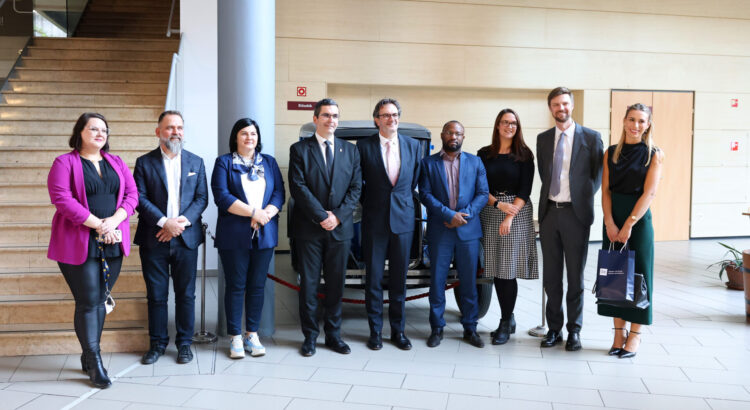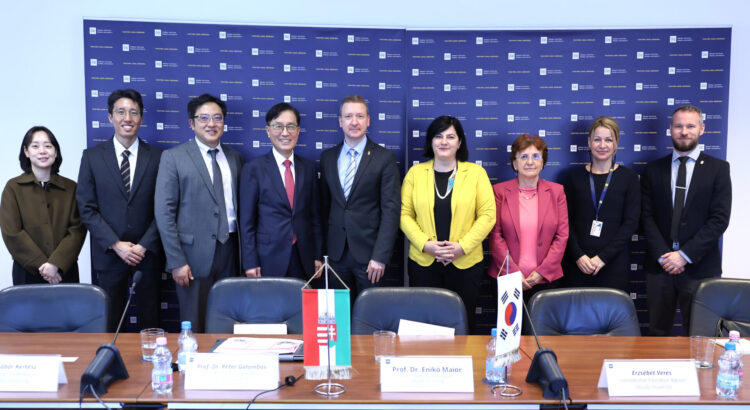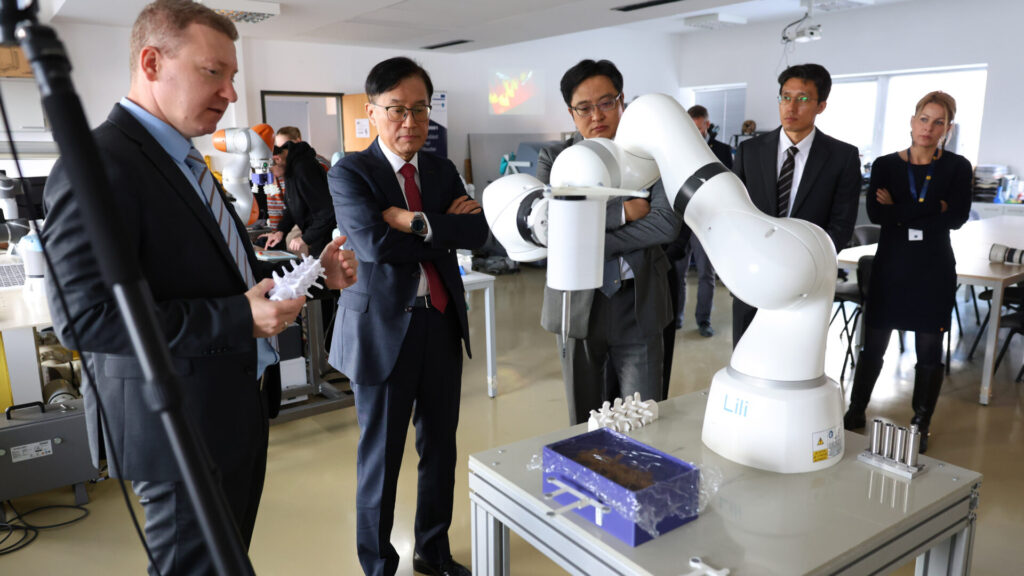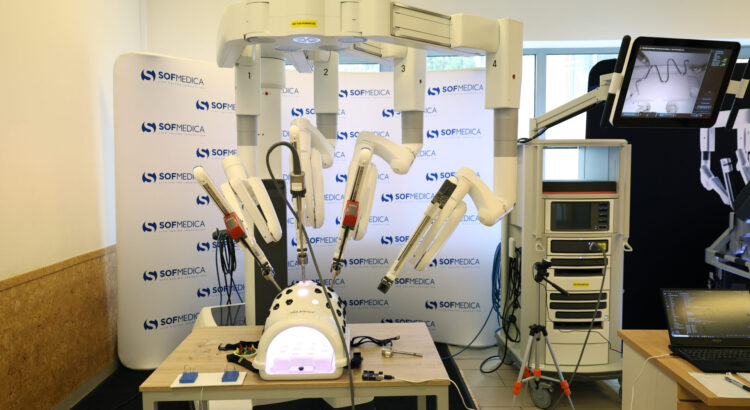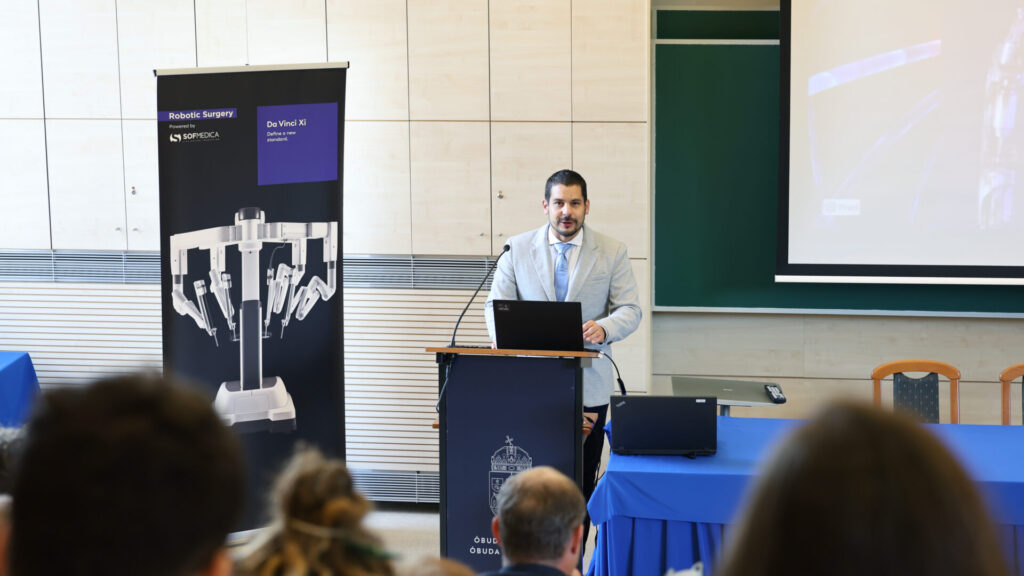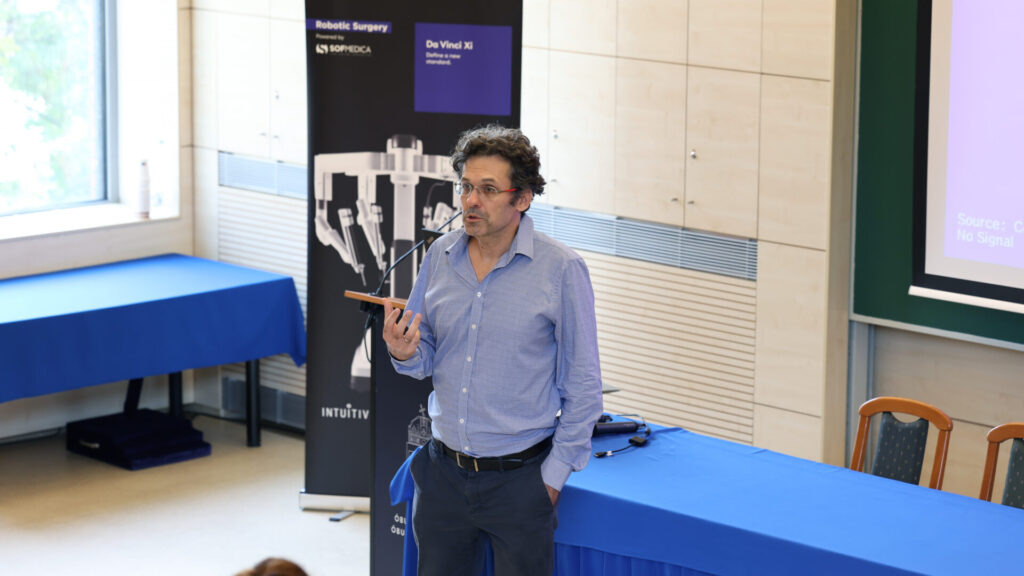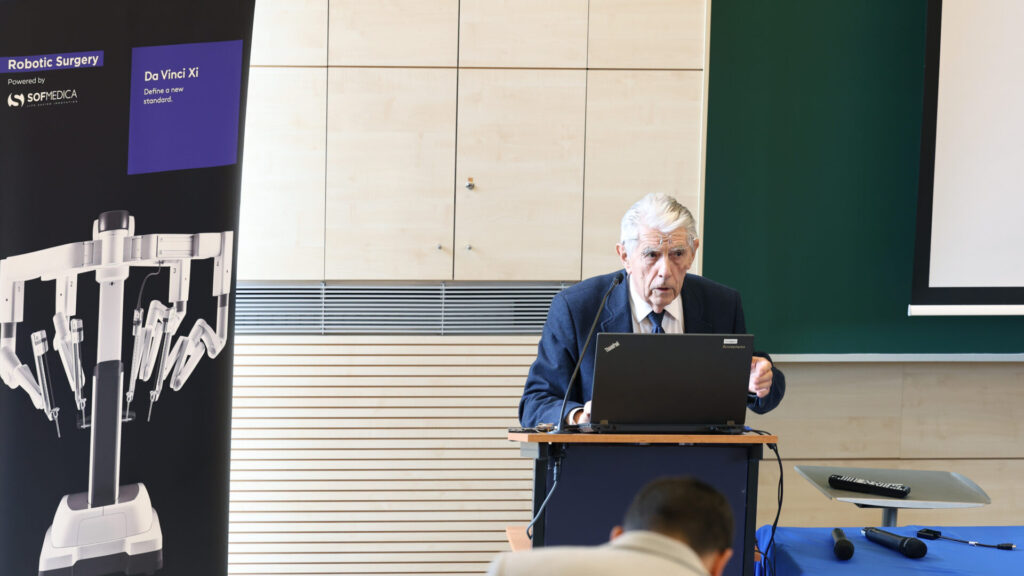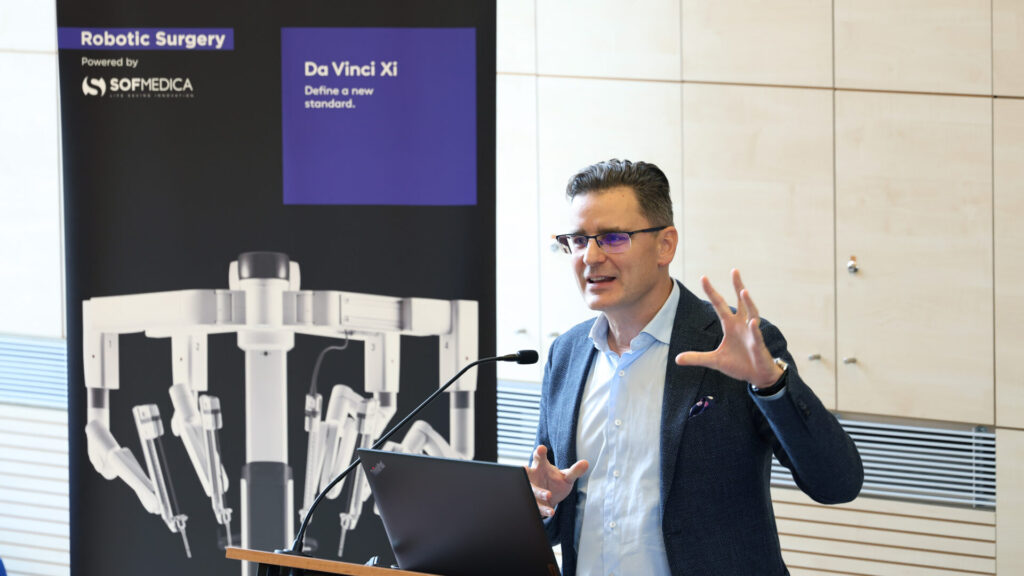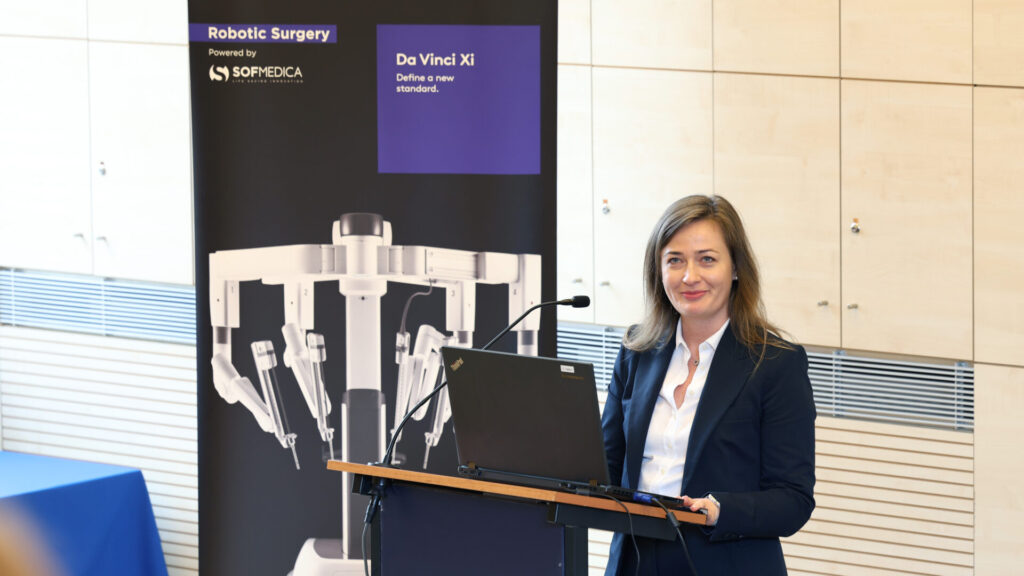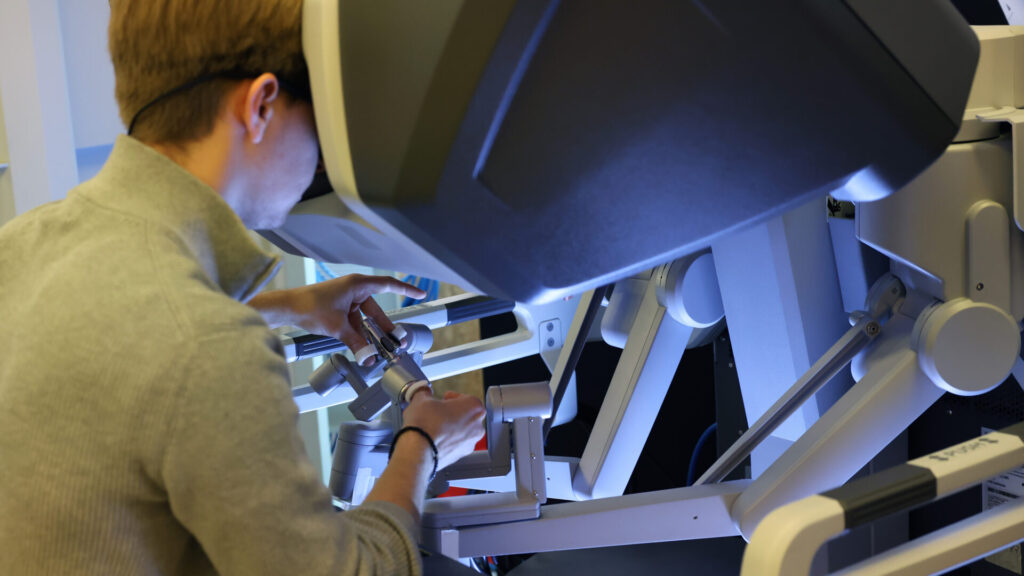On October 22, a delegation from Times Higher Education (THE), one of the most prestigious and reliable global data providers in higher education, visited Obuda University. The delegation, led by CEO Paul Howarth, was in Hungary at the invitation of the Ministry of Culture and Innovation. According to Prof. Dr. Levente Kovács, Rector of Obuda University, the criteria used in the THE rankings play a significant role not only in comparing various institutions but also in shaping medium- and long-term visions and strategies.
The Times Higher Education World University Rankings is one of the most recognized lists of university rankings, comparing institutions worldwide based on education, research environment, research quality, industry links, and international outlook. The THE delegation was invited to Hungary by Balázs Hankó, Minister for Culture and Innovation, as part of a program that included visits to various universities, including Obuda University.
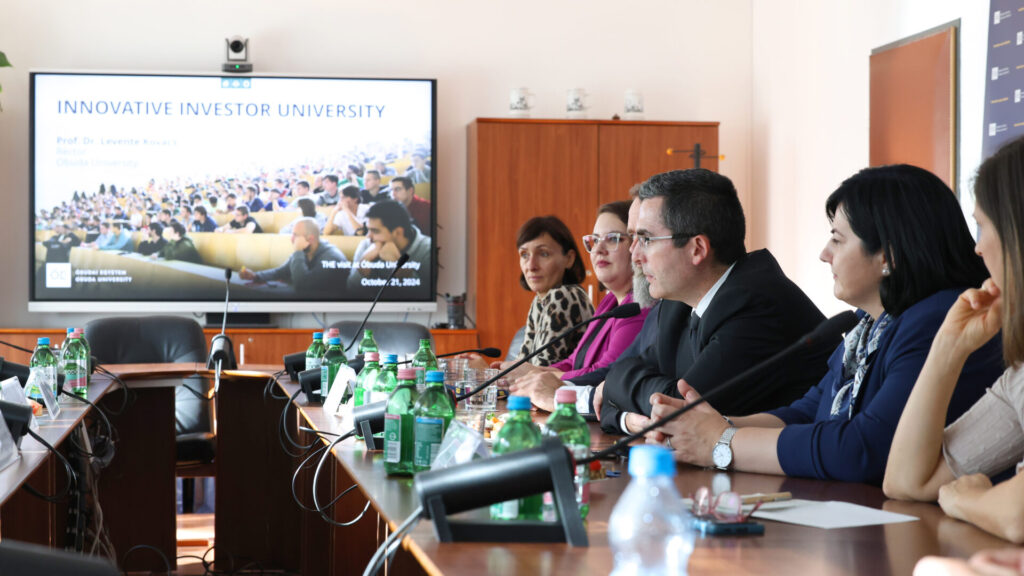
Prof. Dr. Levente Kovács highlighted that being ranked in THE is already a significant achievement for any institution. In 2021, Obuda University made its first appearance in the rankings, placing within the 1001-1200 range. He emphasized that this was already considered a success for the university. However, the results published on October 9 of this year show that the university has advanced two tiers, now ranked within the 601-800 range. “This is a tremendous honor for us, as nearly 3,000 universities were evaluated, and we have now managed to rise to the top both nationally and regionally!” the Rector emphasized. The most significant progress was made in the indicators measuring research quality, where Obuda University ranks first among the V4 countries. Prof. Dr. Levente Kovács also reported that he discussed with Paul Howarth the steps that led to the university’s recently published achievements.
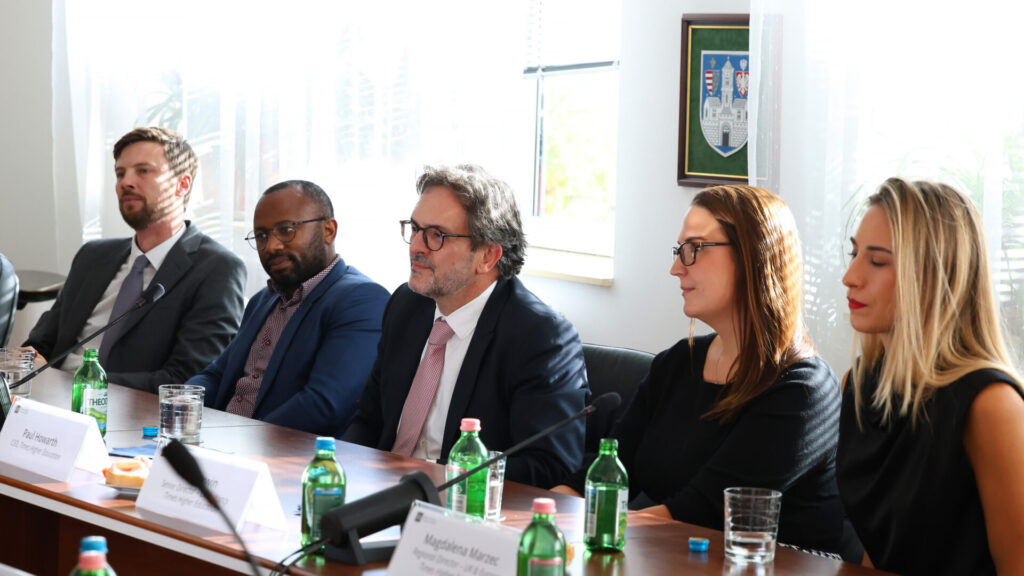
In addition to the Rector, the university was represented by Botond Fehér, Director-General for Financial Affairs, Prof. Dr. Enikő Maior, Vice-Rector for Education, Dr. Viktória Sugár, Vice-Rector for Sustainability and Strategic Developments, Dr. Zsuzsanna Csepeli, Head of the Rector’s Office, and Emese Baranyi, Head of the International Relations Office. The THE delegation included John Gill, THE’s Editor and Chief Content Officer, Vicky Irwin, Senior Director, Magdalena Marzec, Regional Director for the UK and Europe, Yemi Adeshiyan, Managing Director of Global Events, and Mariann Veronika Nagy, Ministerial Advisor.
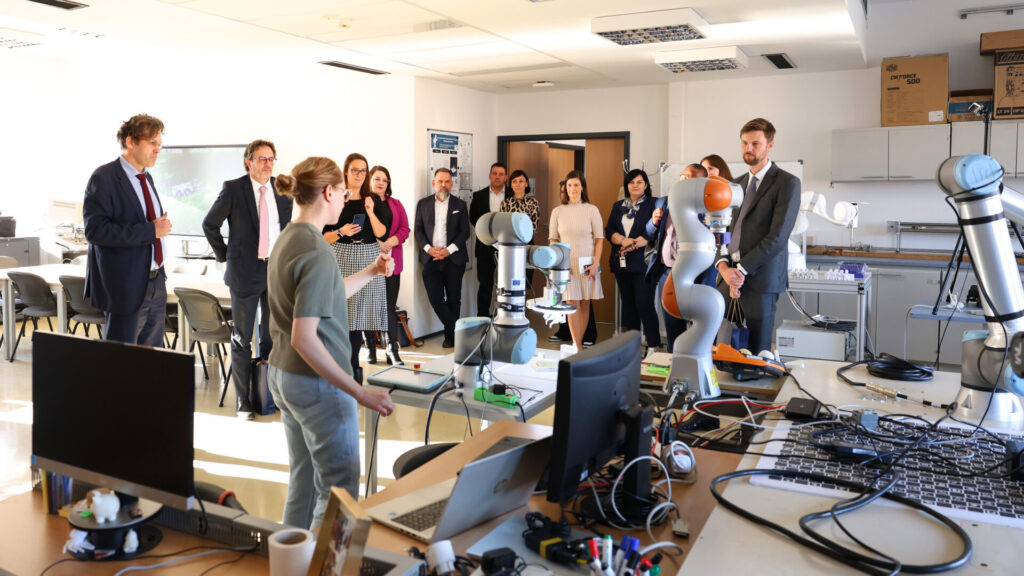
Following the meeting, the delegation visited the university’s Robotics Laboratory at the University Research and Innovation Center.
